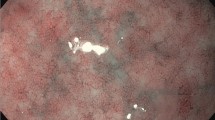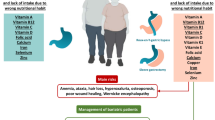Abstract
Background
Past trials have shown perioperative immunonutrition to improve the outcome for patients with gastric cancer. The present study was designed to evaluate the effect of preoperative oral immunonutrition on cellular immunity, the duration of the systemic inflammatory response syndrome (SIRS), and detailed postoperative complications in patients with gastric cancer.
Methods
Sixty patients with gastric cancer were randomly assigned to two groups: one group received immune-enhanced formulas supplemented with arginine and ω-3 fatty acids (immune-enhancing diet (ID) group, n = 30); the other received standard formulas (conventional diet (CD) group, n = 30) for 7 days before the operation. These groups were well matched in terms of age, sex, operations, cancer stages, and intraoperative variables. The postoperative outcome was evaluated based on clinical variables, including postoperative infectious complications, noninfectious complications, and SIRS duration. In addition, the perioperative state of cellular immunity was evaluated and compared between the two groups.
Results
The incidence of postoperative infectious complications in the ID group (6%) was significantly (p < 0.05) lower than that of the CD group (28%). The duration of SIRS in the ID group (0.77 ± 0.9 days) was significantly (p < 0.05) shorter than that in the CD group (1.34 ± 1.45 days). The postoperative lymphocyte and CD4+T-cell counts significantly decreased (p < 0.05) in both groups. However, the number of CD4+T-cells on preoperative day 1 and postoperative day 7 was significantly (p < 0.05) higher in the ID group than in the CD group.
Conclusions
Preoperative oral immune-enhanced formulas supplemented with arginine and ω-3 fatty acids enhanced the immune status of the patients, reduced the duration of SIRS, and decreased the incidence of postoperative infectious complications. CD4+T-cell immunity likely played an important role in the modulation of the postoperative immune and inflammatory response after gastrectomy.

Similar content being viewed by others
References
Chang HR, Bistrian B (1998) The role of cytokines in the catabolic consequences of infection and injury. JPEN J Parenter Enteral Nutr 22:156–166
Bistrian BR, Blackburn GL, Hallowell E, Heddle R (1974) Protein status of general surgical patients. JAMA 230:858–860
Nixon DW, Heymsfield SB, Cohell AE, Kutner MH, Anslev J, Lawson DH et al (1980) Protein-calorice undernutrition in hospitalized cancer patients. Am J Med 68:683–690
Meakins JL (1989) Host defense mechanisms in surgical patients: effect of surgery and trauma. Acta Chir Scand Suppl 550:43–53
Decker D, Schoendorf M, Bidlingmaier F, Himer A, von Ruecker AA (1996) Surgical stress induces a shift in the type-1/type-2 T-helper cell balance, suggesting down-regulation of cell-mediated and up-regulation of antibody-mediated immunity commensurate to the trauma. Surgery 119:316–325
Weiss G, Meyer F, Matthies B, Pross M, Koenig W, Lippert H (2002) Immunomodulation by perioperative administration of n-3 fatty acids. Br J Nutr 87:S89–S94
Braga M, Gianotti L, Vignali A, Carlo VD (1998) Immunonutrition in gastric cancer surgical patients. Nutrition 14:831–835
Braga M, Gianotti L, Nespoli L, Radaelli G, Di Carlo V (2002) Nutritional approach in malnourished surgical patients: a prospective randomized study. Arch Surg 137:174–180
Daly JM, Weintraub FN, Shou J, Rosato EF, Lucia M (1995) Enteral nutrition during multimodality therapy in upper gastrointestinal cancer patients. Ann Surg 221:327–338
Senkal M, Zumtobel V, Bauer K-H, Marpe B, Wolfram G, Frei A et al (1999) Outcome and cost-effectiveness of perioperative enteral immunonutrition in patients undergoing elective upper gastrointestinal tract surgery. Arch Surg 134:1309–1316
Farreras N, Artigas V, Cardona D, Rius X, Trias M, Gonzalez JA (2005) Effect of early postoperative enteral immunonutrition on wound healing in patients undergoing surgery for gastric cancer. Clin Nutr 24:55–65
Gianotti L, Braga M, Neapoli L, Radaelli G, Beneduce A, Carlo VD (2002) A randomized controlled trial on preoperative oral supplementation with a specialized diet in patients with gastrointestinal cancer. Gastroenterology 122:1763–170
Braga M, Gianotti L, Radaelli G, Vignali A, Mari G, Gentilini O et al (1999) Perioperative immunonutrition in patients undergoing cancer surgery: results of a randomized double-blind phase 3 trial. Arch Surg 134:428–433
Japan Gastric Cancer Association (1999) Japanese classification of gastric carcinoma, 13th edn. Japan Gastric Cancer Association, Tokyo
Bone RC, Balk RA, Cerra FB, Dellinqer RP, Fein AM, Knaus WA et al (1992) ACCP/SCCM Consensus Conference: definitions for sepsis and organ failure and guidelines for the use of innovative therapies in sepsis. Chest 101:1644–1655
Xu J, Zhong Y, Jing D, Wu Z (2006) Preoperative enteral immunonutrition improves postoperative outcome in patients with gastrointestinal cancer. World J Surg 30:1284–1289
Christou NV, Meakins JL, Gordon J, Yee J, Hassan-Zahraee M, Nohr CW et al (1995) The delayed hypersensitivity response and host resistance in surgical patients. 20 years later. Ann Surg 222:534–546
Lundy J, Lovett EJIII, Wolinsky SM, Conran P (1979) Immune impairment and metastatic tumor growth: the need for an immunorestorative drug as an adjunct to surgery. Cancer 43:945–951
Atkinson S, Sieffiert E, Bihari D (1998) A prospective, randomized, double-blind, controlled clinical trial of enteral immunonutrition in the critically ill. Guy’s Hospital Intensive Care Group. Crit Care Med 26:1164–1172
Daly JM, Lieberman MD, Goldfine J, Shou J, Weintraub F, Rosato EF (1992) Enteral nutrition with supplemental arginine, RNA, and omega-3 fatty acids in patients after operation: immunologic, metabolic and clinical outcome. Surgery 112:56–67
Gianotti L, Braga M, Gentilini O, Balzano G, Zerbi A, Di Carlo V (2000) Artificial nutrition after pancreaticoduodenectomy. Pancreas 21:344–351
Braga M, Gianotti L, Vignali A, Carlo VD (2002) Preoperative oral arginine and n-3 fatty acid supplementation improves the immunometabolic host response and outcome after colorectal resection for cancer. Surgery 132:805–814
Tujinaka T, Hirao M, Fijitani K, Mishima H, Ikenaga M, Sawamura T et al (2007) Effect of preoperative immunonutrition on body composition in patients undergoing abdominal cancer surgery. Surg Today 37:118–121
Matsuda A, Furukawa K, Takasaki H, Suzuki H, Kan H, Tsuruta H et al (2006) Preoperative oral immune-enhancing nutritional supplementation corrects Th1/Th2 imbalance in patients undergoing elective surgery for colorectal cancer. Dis Colon Rectum 49:507–516
Kemen M, Senkal M, Homann HH, Mumme A, Dauphin AK, Baier J et al (1995) Early postoperative enteral nutrition with arginine-omega-3 fatty acids and ribonucleic acid: supplemented diet versus placebo in cancer patients: an immunologic evaluation of impact. Crit Care Med 23:652–659
Senkal M, Kemen M, Homann HH, Eickhoff U, Baier J, Zumtobel V (1995) Modulation of postoperative immune response by enteral nutrition with a diet enriched with arginine, RNA, and omega-3 fatty acids in patients with upper gastrointestinal cancer. Eur J Surg 161:115–122
Kinsella JE, Lokesh B, Broughton S, Whelan J (1990) Dietary polyunsaturated fatty acids and eicosanoids: potential effect on the modulation of inflammatory and immune cells: an overview. Nutrition 6:24–44
Weinmann A, Bastian L, Bischoff WE, Grotz M, Hansel M, Lotz J et al (1998) Influence of arginine, omega-3 fatty acids and nucleotide-supplemented enteral support on systemic inflammatory response syndrome and multiple organ failure in patients after severe trauma. Nutrition 14:165–172
Takeuchi H, Ikeuchi S, Kawaguchi Y, Kitagawa Y, Isobe Y, Kubochi K et al (2007) Clinical significance of perioperative immunonutrition for patients with esophageal cancer. World J Surg 31:2160–2167
Morlion BJ, Torwesten E, Lessire H, Sturm G, Peskar BM, Furst P et al (1996) The effect of parenteral fish oil on leukocyte membrane fatty acids composition and leukotriene-synthesizing capacity in patients with postoperative trauma. Metabolism 45:1208–1213
Swails WS, Kenler AS, Driscoll DF, DeMichele SJ, Babineau TJ, Utsunamiya T et al (1997) Effect of a fish oil structured lipid-based diet on prostaglandin release from mononuclear cells in cancer patients after surgery. JPEN J Parenter Enteral Nutr 21:226–274
Kenler AS, Swails WS, Driscoll DF, DeMichele SJ, Daley B, Barbineau TJ et al (1996) Early enteral feeding in postsurgical cancer patients. Fish oil lipid-based polymeric formula versus a standard polymeric formula. Ann Surg 223:316–333
Raynold JV, Daly JM, Zhang S, Evabtash E, Shou J, Sigal R et al (1988) Immunomodulatory mechanisms of arginine. Surgery 104:141–151
Moncada S, Higgs A (1993) The l-arginine-nitric oxide pathway. N Engl J Med 329:2002–2012
Gianotti L, Alexander JW, Pyles T, Fukushima R (1993) Arginine-supplemented diet improves survival in gut-derived sepsis and peritonitis by modulating bacterial clearance. The role of nitric oxide. Ann Surg 217:644–653
Cynober L (2003) Immuno-enhancing diets for stressed patients with a special emphasis on arginine content: analysis of the analysis. Curr Opin Clin Nutr Metab Care 6:189–193
Kalil AC, Danner RL (2006) l-arginine supplementation in sepsis: beneficial or harmful? Curr Opin Crit Care 12:303–308
Zhou M, Martindale RG (2007) Arginine in the critical care setting. J Nutr 137:1687S–1692S
Author information
Authors and Affiliations
Corresponding author
Rights and permissions
About this article
Cite this article
Okamoto, Y., Okano, K., Izuishi, K. et al. Attenuation of the Systemic Inflammatory Response and Infectious Complications After Gastrectomy with Preoperative Oral Arginine and ω-3 Fatty Acids Supplemented Immunonutrition. World J Surg 33, 1815–1821 (2009). https://doi.org/10.1007/s00268-009-0140-1
Published:
Issue Date:
DOI: https://doi.org/10.1007/s00268-009-0140-1




